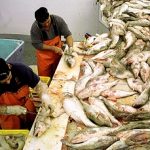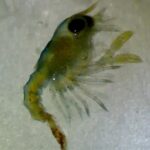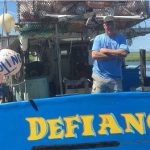Tag Archives: environmentalists
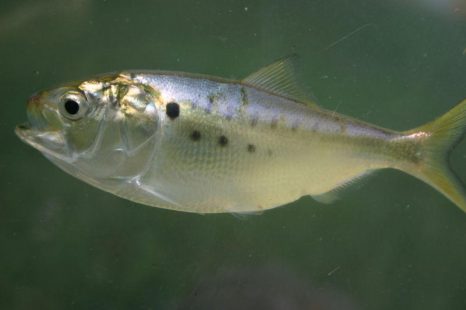
Environmentalists Are Wrong About Menhaden Fishery
Fishing companies are at odds with Rhode Island environmental advocacy groups over proposed changes for the menhaden fishing industry, Changes to the Interstate Fishery Management Plan for Atlantic Menhaden are up for a vote at the Atlantic States Marine Fisheries Commission meeting in Maryland this Monday and Tuesday. Meghan Lapp, fishery liaison for the Rhode Island-based Seafreeze Ltd, said that temporary plan shouldn’t be implemented because it’s based off of science that isn’t applicable to menhaden. click here to read the story 12:19
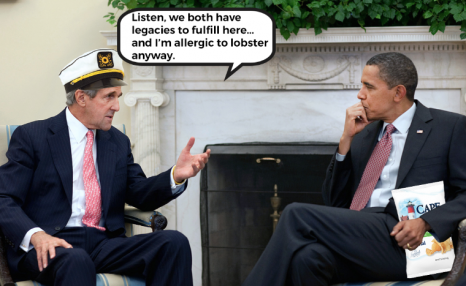
Fishermen, environmentalists continue battle over protected area off Cape Cod
Environmentalists often work with fishermen to reach a middle ground that benefits the environment and eases the regulatory burden on the industry. (baloney) The Environmental Defense Fund, for instance, has partnered with fishermen, both locally and nationally, absorbing some of the cost of new equipment to make electronic monitoring of catches at sea a feasible alternative. But there’s little consensus when it comes to the country’s newest marine park. You either agree there is an urgent need to protect the fragile ecosystems and inhabitants of the 5,000-square-mile Northeast Canyons and Seamounts Marine National Monument, located roughly 130 miles southeast of Cape Cod, or you side with many of the region’s fishermen, who are worried this could be precedent-setting: the first in series of permanent closures in which they have little say. click here to read the story 08:08
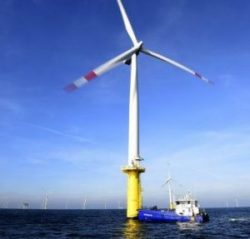
Environmentalists outraged after ‘green’ wind turbines murder family of whales
Some environmentalists are saying wind turbines pose a threat to whales after a family of minke whales were found dead in the United Kingdom. According to reports by the Times (London) and Daily Caller, a young minke whale was found dead in the United Kingdom on May 20. Its mother was found dead on a nearby beach the same day, and a third whale washed ashore on May 21. It’s believed the three whales were part of the same family. According to marine wildlife experts, the whales were likely disoriented by nearby wind turbines, which can affect the sonar whales use to navigate. click here to read the story 19:57
Did catch shares enable the Codfather’s fishing fraud?
 Carlos Rafael’s guilty plea late last month of falsifying fish quotas, conspiracy and tax evasion has prompted renewed criticism of one of the most contentious parts of the New England groundfish fishery’s management system: catch shares.Rafael, who dubbed himself “The Codfather,” owned one of the largest commercial fishing fleets in the United States, and for some community fishermen in New England, his case represents consolidation run amok. Consolidating fishing permits, they say, also centralizes power, making fraud more likely. But for environmentalists who support catch shares as a way to reduce overfishing, consolidation isn’t inevitable. They say Rafael’s case highlights the need for better monitoring and fraud protections to prevent the sort of cheating that can plague any fishery management system. click here to read the rest 19:09
Carlos Rafael’s guilty plea late last month of falsifying fish quotas, conspiracy and tax evasion has prompted renewed criticism of one of the most contentious parts of the New England groundfish fishery’s management system: catch shares.Rafael, who dubbed himself “The Codfather,” owned one of the largest commercial fishing fleets in the United States, and for some community fishermen in New England, his case represents consolidation run amok. Consolidating fishing permits, they say, also centralizes power, making fraud more likely. But for environmentalists who support catch shares as a way to reduce overfishing, consolidation isn’t inevitable. They say Rafael’s case highlights the need for better monitoring and fraud protections to prevent the sort of cheating that can plague any fishery management system. click here to read the rest 19:09
Canada has MPA Fever – Atlantic Canadian fishermen not hooked on idea
 A federal government plan to speed up the creation of more marine protected areas in Canada is getting pushback from some Atlantic Canadian fisheries groups. Marine protected areas are established to protect species at risk or unique species from human interference. These areas can close designated ocean and coastal areas to economic activities like offshore energy development and fishing. “This is a huge impact on all the fisheries in Canada,” said Ian MacPherson, the executive director of the Prince Edward Island Fishermen’s Association. MacPherson and other fishing industry representatives outlined their concerns this week in appearances before the parliamentary standing committee on fisheries and oceans. click here to continue reading the story 12:04
A federal government plan to speed up the creation of more marine protected areas in Canada is getting pushback from some Atlantic Canadian fisheries groups. Marine protected areas are established to protect species at risk or unique species from human interference. These areas can close designated ocean and coastal areas to economic activities like offshore energy development and fishing. “This is a huge impact on all the fisheries in Canada,” said Ian MacPherson, the executive director of the Prince Edward Island Fishermen’s Association. MacPherson and other fishing industry representatives outlined their concerns this week in appearances before the parliamentary standing committee on fisheries and oceans. click here to continue reading the story 12:04
Todays Nuttery: Rogue Fishing Ops Call for Enforcement Led by U.S. Navy, a Primary Tenet of Global High Seas Marine Preserve
 Pressure on coastal fisheries, from overfishing and pollution, is pushing more and more fishing trawlers into the high seas or to illegally poach on territories with no ability to enforcement their 200-mile territorial limits. One of the primary tenets of the Global High Sea Marine Preserve, a non-profit dedicated to saving the oceans founded by Danny Quintana, is to ban industrial fishing in international waters for the United States Navy to take lead role with other maritime forces to enforce the ban. The Law of the Seas Treaty needs to be renegotiated and approved by the United States Senate to facilitate such an eventuality.,, According to the International Union for Conservation of Nature’s (IUCN) Red List of endangered species, 1,414 species of fish, or 5 percent of the world’s known species, are at risk for extinction. While habitat loss and pollution are significant factors in the decline of these species, the greatest threat by far is overfishing. (wow!) Continue reading the stuff here 11:32
Pressure on coastal fisheries, from overfishing and pollution, is pushing more and more fishing trawlers into the high seas or to illegally poach on territories with no ability to enforcement their 200-mile territorial limits. One of the primary tenets of the Global High Sea Marine Preserve, a non-profit dedicated to saving the oceans founded by Danny Quintana, is to ban industrial fishing in international waters for the United States Navy to take lead role with other maritime forces to enforce the ban. The Law of the Seas Treaty needs to be renegotiated and approved by the United States Senate to facilitate such an eventuality.,, According to the International Union for Conservation of Nature’s (IUCN) Red List of endangered species, 1,414 species of fish, or 5 percent of the world’s known species, are at risk for extinction. While habitat loss and pollution are significant factors in the decline of these species, the greatest threat by far is overfishing. (wow!) Continue reading the stuff here 11:32
Environmentalists Spend Big Money to Put Commercial Fishing People Out of Work
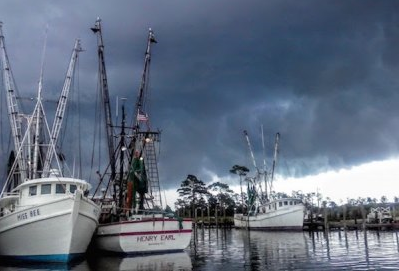 In an industry where commerce depends solely on the catch, commercial fishing is one of the most volatile professions in the country. From market prices to weather patterns, there are many factors that could result in poor landings and scant pay check. On top of these factors, an environmental group has proposed drastic rule changes for the trawl industry that could shut down a the NC shrimping business completely. And they’re spending big money to do it. While they claimed the rules would have an impact on the captains and crews, the environmentalists left out the many jobs generated by the trawl industry. From the shrimp headers and dock hands, to the welders and marine mechanics, to the transport drivers and seafood distributors, as well as the administrative employees, North Carolina stands to lose big bucks if fresh shrimp is taken from our tables. Even bigger, the tourism industry – which is has been a huge economic supporter in distressed coastal communities – would certainly take a financial hit.A fishermen can never clock in and be assured of a good paycheck, but environmentalists sure can. According to John Hopkins University there is huge money in being an environmentalist. In 2016, a it was reported a “chief sustainability environmental executive” will earn an average of $166,000 annually, while a general operations managers will start at $95,150. Read the complete article here 14:41
In an industry where commerce depends solely on the catch, commercial fishing is one of the most volatile professions in the country. From market prices to weather patterns, there are many factors that could result in poor landings and scant pay check. On top of these factors, an environmental group has proposed drastic rule changes for the trawl industry that could shut down a the NC shrimping business completely. And they’re spending big money to do it. While they claimed the rules would have an impact on the captains and crews, the environmentalists left out the many jobs generated by the trawl industry. From the shrimp headers and dock hands, to the welders and marine mechanics, to the transport drivers and seafood distributors, as well as the administrative employees, North Carolina stands to lose big bucks if fresh shrimp is taken from our tables. Even bigger, the tourism industry – which is has been a huge economic supporter in distressed coastal communities – would certainly take a financial hit.A fishermen can never clock in and be assured of a good paycheck, but environmentalists sure can. According to John Hopkins University there is huge money in being an environmentalist. In 2016, a it was reported a “chief sustainability environmental executive” will earn an average of $166,000 annually, while a general operations managers will start at $95,150. Read the complete article here 14:41
Fish Are Fueling a Battle to Preserve Offshore Rigs as Artificial Reefs along the California Coast
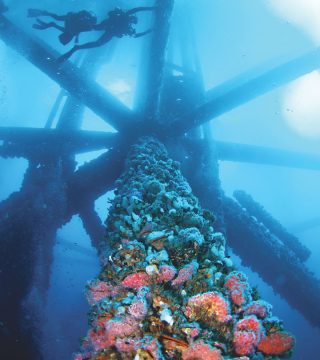 Sprawled on the bottom level of a massive oil rig more than 11 miles from the shores of Long Beach, the half-dozen sea lions grow louder as our boat glides closer. One chews on a fish, holding it with long flippers, while nearly 300 feet above it rises the Ellen, a Mad Max-worthy assemblage of metal tubing and cables that pumps about 2,600 barrels of crude every day. A short distance away, attached by a latticework bridge, is its little sister, the Elly. If it’s strange to see wildlife on such a foreboding structure as it whirs and grinds, it’s stranger to think of all the sea life among the oil platform’s mooring lines and steel legs as
they extend about 260 feet to the ocean floor. “The deeper you go, the more marine life there is,” says Cal State Long Beach marine biologist Chris Lowe. In 2010, Governor Arnold Schwarzenegger signed AB2503, otherwise known as the Rigs-to-Reefs Law, which permits certain oil and gas platforms to be left in place rather than completely removed once their drilling days are done. It was a third attempt to pass such a law. Read the story here 17:00
Sprawled on the bottom level of a massive oil rig more than 11 miles from the shores of Long Beach, the half-dozen sea lions grow louder as our boat glides closer. One chews on a fish, holding it with long flippers, while nearly 300 feet above it rises the Ellen, a Mad Max-worthy assemblage of metal tubing and cables that pumps about 2,600 barrels of crude every day. A short distance away, attached by a latticework bridge, is its little sister, the Elly. If it’s strange to see wildlife on such a foreboding structure as it whirs and grinds, it’s stranger to think of all the sea life among the oil platform’s mooring lines and steel legs as
they extend about 260 feet to the ocean floor. “The deeper you go, the more marine life there is,” says Cal State Long Beach marine biologist Chris Lowe. In 2010, Governor Arnold Schwarzenegger signed AB2503, otherwise known as the Rigs-to-Reefs Law, which permits certain oil and gas platforms to be left in place rather than completely removed once their drilling days are done. It was a third attempt to pass such a law. Read the story here 17:00
D.B. Pleschner: ENGO Extremists manufacture anchovy ‘crisis’ where none exists
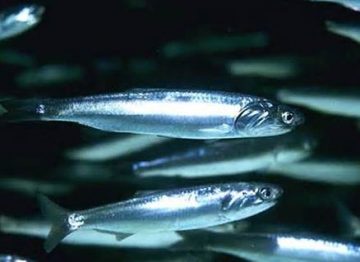 When the National Marine Fisheries Service (NMFS) recently reapproved the 2017 annual catch limit for the central stock of anchovy at 25,000 metric tons (mt), environmental extremists immediately cried foul. Press releases with doomsday headlines claimed that the anchovy catch limit is now higher than the total population of fish in the sea. Environmentalists claim the anchovy resource has “collapsed” and the current catch limit is dangerously high. But is the anchovy population really decimated, or are these alarmists simply manufacturing another anti-fishing crisis? In reality, anchovies are now amazingly abundant from San Diego to Northern California. Scientific data as well as fishermen’s observation bear this out: Read the op-ed here 12:22
When the National Marine Fisheries Service (NMFS) recently reapproved the 2017 annual catch limit for the central stock of anchovy at 25,000 metric tons (mt), environmental extremists immediately cried foul. Press releases with doomsday headlines claimed that the anchovy catch limit is now higher than the total population of fish in the sea. Environmentalists claim the anchovy resource has “collapsed” and the current catch limit is dangerously high. But is the anchovy population really decimated, or are these alarmists simply manufacturing another anti-fishing crisis? In reality, anchovies are now amazingly abundant from San Diego to Northern California. Scientific data as well as fishermen’s observation bear this out: Read the op-ed here 12:22
Billionaire crony corporatist schemes – Financing “green” companies and enviro groups, getting richer off taxpayers and consumers
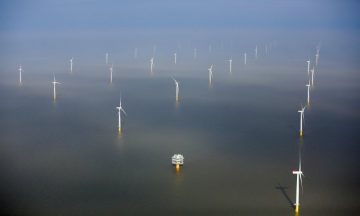 Shady cash from Vladimir Putin’s Russian energy oligarchs and other rich donors is being laundered through Bermuda-based lawyers and middlemen to “green” pressure groups, lobbyists and spinmeisters – to promote “green energy” schemes that bring billions of dollars from government agencies (and thus from us taxpayers and consumers) to a cabal of billionaires and crony companies. At the epicenter are hedge fund millionaire Nathaniel Simons, his wife Laura and their secretive Sea Change Foundation. “Investors” become even wealthier, as billions of dollars are transferred annually to environmentalists, scientists, politicians, bureaucrats and crony-corporatists in Renewable Energy & Climate Crisis, Inc. The alleged “urgency” of replacing fossil fuels with “eco-friendly renewable energy” (to prevent catastrophic manmade climate change) drives and excuses operations that define or barely skirt “corrupt practices.” The arrangements are too convoluted to explain in one article. Even the US Senate’s “Billionaires’ Club” report, Environmental Policy Alliance’s “From Russia with Love” study, and articles by investigative journalists like Ron Arnold and Lachlan Markay (here, here and here) barely scratch the surface. Washington is out of control. The IRS targeting conservative groups, Clinton Foundation and national security scandals, FBI pseudo-investigations and whitewashing, bureaucrats imposing $1.9 trillion in economy-crushing regulations that ruin families and communities – with virtually no perpetrators ever held accountable. Read the essay here 16:12
Shady cash from Vladimir Putin’s Russian energy oligarchs and other rich donors is being laundered through Bermuda-based lawyers and middlemen to “green” pressure groups, lobbyists and spinmeisters – to promote “green energy” schemes that bring billions of dollars from government agencies (and thus from us taxpayers and consumers) to a cabal of billionaires and crony companies. At the epicenter are hedge fund millionaire Nathaniel Simons, his wife Laura and their secretive Sea Change Foundation. “Investors” become even wealthier, as billions of dollars are transferred annually to environmentalists, scientists, politicians, bureaucrats and crony-corporatists in Renewable Energy & Climate Crisis, Inc. The alleged “urgency” of replacing fossil fuels with “eco-friendly renewable energy” (to prevent catastrophic manmade climate change) drives and excuses operations that define or barely skirt “corrupt practices.” The arrangements are too convoluted to explain in one article. Even the US Senate’s “Billionaires’ Club” report, Environmental Policy Alliance’s “From Russia with Love” study, and articles by investigative journalists like Ron Arnold and Lachlan Markay (here, here and here) barely scratch the surface. Washington is out of control. The IRS targeting conservative groups, Clinton Foundation and national security scandals, FBI pseudo-investigations and whitewashing, bureaucrats imposing $1.9 trillion in economy-crushing regulations that ruin families and communities – with virtually no perpetrators ever held accountable. Read the essay here 16:12
Battle over Cashes Ledge and Seamounts continues between fishermen, environmentalists
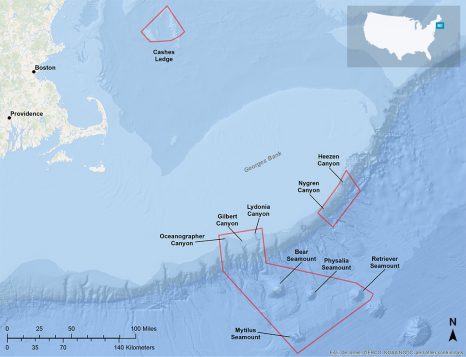 Despite the Obama administration’s declaration that Cashes Ledge has been taken off the table as a possible location for a marine national monument, the divisive issue of the monuments continues to percolate nationally between fishermen and conservationists. From Hawaii to New England, the lines are clearly drawn. Conservation groups have sustained a steady lobbying campaign to convince President Obama to employ the Antiquities Act to create new marine national monuments in the waters around Cashes Ledge, about 80 miles off Gloucester, and the seamounts off southern New England and Monterey, California. “We’re pushing as hard as we can with elected officials and the White House on those areas that have been identified and confirmed by the scientific community as being of great interest,” Peter Shelley, interim president and senior counsel at the Conservation Law Foundation, said of two New England areas. “These areas need permanent protection and this is not going to go away as a priority for us.” “This is not going to go away as a priority for us,” Shelley said. “It is not going to change with (presidential) administrations.” Read the story here 08:17
Despite the Obama administration’s declaration that Cashes Ledge has been taken off the table as a possible location for a marine national monument, the divisive issue of the monuments continues to percolate nationally between fishermen and conservationists. From Hawaii to New England, the lines are clearly drawn. Conservation groups have sustained a steady lobbying campaign to convince President Obama to employ the Antiquities Act to create new marine national monuments in the waters around Cashes Ledge, about 80 miles off Gloucester, and the seamounts off southern New England and Monterey, California. “We’re pushing as hard as we can with elected officials and the White House on those areas that have been identified and confirmed by the scientific community as being of great interest,” Peter Shelley, interim president and senior counsel at the Conservation Law Foundation, said of two New England areas. “These areas need permanent protection and this is not going to go away as a priority for us.” “This is not going to go away as a priority for us,” Shelley said. “It is not going to change with (presidential) administrations.” Read the story here 08:17
Rec Fishers, environmentalists join forces in NT debate (attack) over impact of finfish trawling
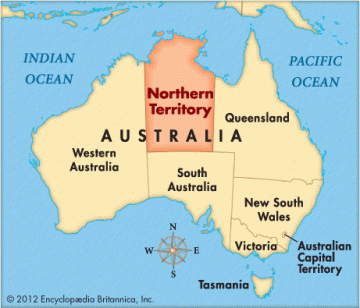 Amateur fishers have banded together with charter operators, environmentalists and some commercial fishers to raise an alarm about the ecological and social impacts of finfish trawling in the Northern Territory. The unusual alliance has been drawn together as stocks of some of the Territory’s most-prized fish species dwindled. The groups – which have often been at odds with each other – have come together with the Australian Marine Conservation Society (AMCS) to raise their concerns.,, Amateur Fishermen’s Association of the NT (AFANT) chief executive Tristan Sloan said AFANT had received reports of damage in the Timor Reef from finfish trawling, and likened it to the “maritime equivalent of two … bulldozers and a length of chain dragging along the bottom, dredging up all the coral”. Read the rest here 11:27
Amateur fishers have banded together with charter operators, environmentalists and some commercial fishers to raise an alarm about the ecological and social impacts of finfish trawling in the Northern Territory. The unusual alliance has been drawn together as stocks of some of the Territory’s most-prized fish species dwindled. The groups – which have often been at odds with each other – have come together with the Australian Marine Conservation Society (AMCS) to raise their concerns.,, Amateur Fishermen’s Association of the NT (AFANT) chief executive Tristan Sloan said AFANT had received reports of damage in the Timor Reef from finfish trawling, and likened it to the “maritime equivalent of two … bulldozers and a length of chain dragging along the bottom, dredging up all the coral”. Read the rest here 11:27
Environmentalists Wield Powerful Endangered Species Act to Kill Jobs
 Think fish when you read this. From the article: The Center for Biological Diversity (CBD) is a radical environmental legal action group that’s known for frequently suing to block commercial, industrial, and personal activities in an effort to “save the environment,” regardless of who gets hurt. One of the group’s leaders and co-founders, Kieran Suckling, was a well-known activist in the 1980s and has been linked to vandalism and sabotage group Earth First! From its inception, CBD has sought ways to permanently stop natural resource use, and with the help of environmental attorneys, CBD has successfully weaponized the Endangered Species Act (ESA) against ranchers, loggers, miners, (fishermen) and human activity in general. Read the rest here 13:51
Think fish when you read this. From the article: The Center for Biological Diversity (CBD) is a radical environmental legal action group that’s known for frequently suing to block commercial, industrial, and personal activities in an effort to “save the environment,” regardless of who gets hurt. One of the group’s leaders and co-founders, Kieran Suckling, was a well-known activist in the 1980s and has been linked to vandalism and sabotage group Earth First! From its inception, CBD has sought ways to permanently stop natural resource use, and with the help of environmental attorneys, CBD has successfully weaponized the Endangered Species Act (ESA) against ranchers, loggers, miners, (fishermen) and human activity in general. Read the rest here 13:51
Proposed Maryland oyster study draws watermen’s ire
 A bill heard this week by a Senate committee would require scientists to determine a sustainable rate of harvest. But it has drawn the ire of watermen and the seafood industry, who contend such a study is unnecessary and a threat to their livelihood. Supporters of the legislation, including environmentalists and recreational anglers, warned Tuesday that despite a population surge the past few years, the state’s oysters may be at risk of overfishing. That could have dire consequences, they said. Oysters are not only the state’s second most valuable commercial fishery, they also help clean the Chesapeake’s water and provide vital habitat for other fish. The bill, introduced by Sen. Roger Manno, a Montgomery County Democrat. Read the rest here 14:08
A bill heard this week by a Senate committee would require scientists to determine a sustainable rate of harvest. But it has drawn the ire of watermen and the seafood industry, who contend such a study is unnecessary and a threat to their livelihood. Supporters of the legislation, including environmentalists and recreational anglers, warned Tuesday that despite a population surge the past few years, the state’s oysters may be at risk of overfishing. That could have dire consequences, they said. Oysters are not only the state’s second most valuable commercial fishery, they also help clean the Chesapeake’s water and provide vital habitat for other fish. The bill, introduced by Sen. Roger Manno, a Montgomery County Democrat. Read the rest here 14:08
Farmed Atlantic Salmon make Seafood Watch’s ‘avoid’ list
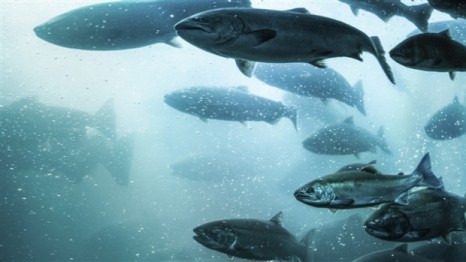 Environmentalists and an aquaculture company disagree about the findings of a new report from the United States that advises consumers to avoid some farm-raised Atlantic Salmon. “It’s not surprising, it’s clear that we need to have improvements in Canada. If we want to even be nearly equivalent to some of the better practices that are happening in Norway and Scotland,” said Susanna Fuller, a Marine Conservation Coordinator with the Ecology Action Centre. Read the rest here 16:34
Environmentalists and an aquaculture company disagree about the findings of a new report from the United States that advises consumers to avoid some farm-raised Atlantic Salmon. “It’s not surprising, it’s clear that we need to have improvements in Canada. If we want to even be nearly equivalent to some of the better practices that are happening in Norway and Scotland,” said Susanna Fuller, a Marine Conservation Coordinator with the Ecology Action Centre. Read the rest here 16:34
Benefits of fish farms in Gulf debated
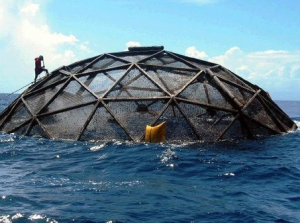 Fish farming is contentious, with fishermen and environmentalists warning that new rules supporting it could harm the marine environment and put fishermen out of work. Federal regulations were issued this week, allowing the farming of fish in federal waters of the Gulf of Mexico. Kathryn Sullivan, administrator of the National Oceanic and Atmospheric Administration, said the Gulf rules could spur similar rules in other U.S. waters and help the U.S. meet its seafood demands. Glen Brooks, president of the Gulf Fishermen’s Association, a group of commercial fishermen, said his group fought against fish farming. Read the article here 10:56
Fish farming is contentious, with fishermen and environmentalists warning that new rules supporting it could harm the marine environment and put fishermen out of work. Federal regulations were issued this week, allowing the farming of fish in federal waters of the Gulf of Mexico. Kathryn Sullivan, administrator of the National Oceanic and Atmospheric Administration, said the Gulf rules could spur similar rules in other U.S. waters and help the U.S. meet its seafood demands. Glen Brooks, president of the Gulf Fishermen’s Association, a group of commercial fishermen, said his group fought against fish farming. Read the article here 10:56
Protection of marine areas to be based on science, Hunter Tootoo says
 Federal Fisheries Minister Hunter Tootoo says science will determine not only which areas of Canada’s oceans the government will designate for protection, but also what development, if any, will be permitted in those areas. “In the meetings I’ve had with the environmental groups, the only way we’re going to be able to accomplish this is all of us working together. Basically all hands on deck,” Tootoo added. Read the article here 09:54
Federal Fisheries Minister Hunter Tootoo says science will determine not only which areas of Canada’s oceans the government will designate for protection, but also what development, if any, will be permitted in those areas. “In the meetings I’ve had with the environmental groups, the only way we’re going to be able to accomplish this is all of us working together. Basically all hands on deck,” Tootoo added. Read the article here 09:54
Environmentalists, fishermen clash over proposed Chumash marine sanctuary
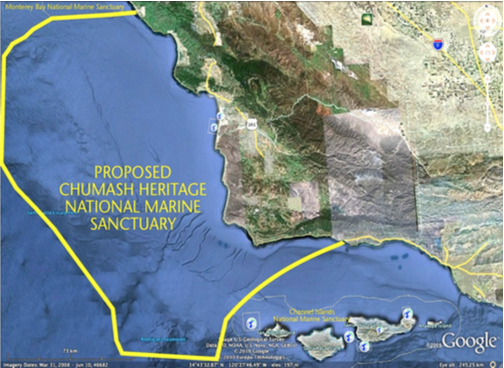 A controversial underwater national park proposed off the Central Coast aims to protect and manage the area’s marine life, stop oil drilling and seismic surveys, and encourage scientific research. In October, the nomination for the Chumash Heritage National Marine Sanctuary was accepted for consideration, setting the stage for a showdown in coming months and years between environmentalists who strongly support the proposed sanctuary and the fishing community that opposes it. Read the article here 23:22
A controversial underwater national park proposed off the Central Coast aims to protect and manage the area’s marine life, stop oil drilling and seismic surveys, and encourage scientific research. In October, the nomination for the Chumash Heritage National Marine Sanctuary was accepted for consideration, setting the stage for a showdown in coming months and years between environmentalists who strongly support the proposed sanctuary and the fishing community that opposes it. Read the article here 23:22
Enviros Upset! Hawaii-based longline fishermen allowed to keep catching ahi
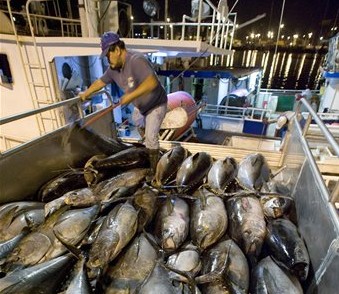 Regulators have approved a deal allowing Hawaii fishermen to attribute up to 1,000 metric tons of bigeye tuna catch to Guam, said Mike Tosatto, National Marine Fisheries Service regional administrator for the Pacific Islands. Environmentalists say the arrangement contributes to the overfishing of bigeye tuna in the western and central Pacific. Environmentalists argue this enables fishermen to circumvent international agreements aimed at controlling overfishing of bigeye. yeah yeah. Read the article here 08:45
Regulators have approved a deal allowing Hawaii fishermen to attribute up to 1,000 metric tons of bigeye tuna catch to Guam, said Mike Tosatto, National Marine Fisheries Service regional administrator for the Pacific Islands. Environmentalists say the arrangement contributes to the overfishing of bigeye tuna in the western and central Pacific. Environmentalists argue this enables fishermen to circumvent international agreements aimed at controlling overfishing of bigeye. yeah yeah. Read the article here 08:45
Approval of GM salmon eggs will be challenged in Canadian court

D.B. Pleschner: Anchovy collapse simply a manufactured ‘crisis’
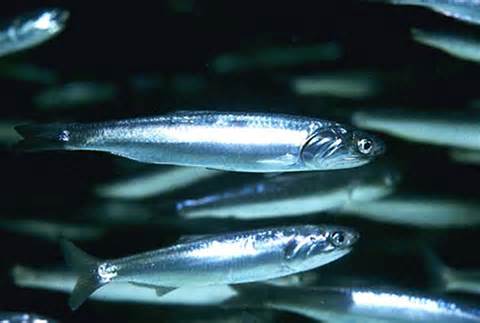 If you follow news about the Monterey Bay, you’ve undoubtedly heard the recent outcry by environmentalists in the media claiming the anchovy population in California has collapsed and the fishery must be closed immediately. The current controversy stems largely from a study funded by environmental interests that claims an apocalyptic decline of 99 percent of the anchovy population from 1951 to 2011. However, fishermen have seen a surge in anchovies in recent years. Read the rest here 20:19
If you follow news about the Monterey Bay, you’ve undoubtedly heard the recent outcry by environmentalists in the media claiming the anchovy population in California has collapsed and the fishery must be closed immediately. The current controversy stems largely from a study funded by environmental interests that claims an apocalyptic decline of 99 percent of the anchovy population from 1951 to 2011. However, fishermen have seen a surge in anchovies in recent years. Read the rest here 20:19
Protesters link fish and chips to dolphin by-catch
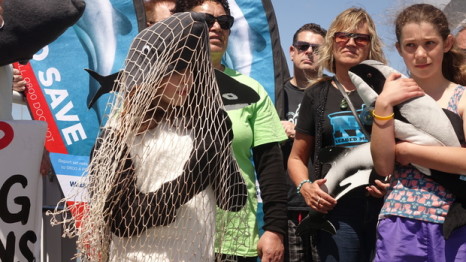 The group Maui and Hector’s Dolphin Defenders says the nets used to catch fish such as mullet and school shark – used in takeaways – trap and kill the dolphins. There are thought to be only 55 adult Maui’s dolphins left. But an industry group called the campaign emotional blackmail. The conservation group protested on in South Auckland yesterday at the use of gill nets. One of the group, 15-year-old environmentalist, Libby Christophers, said 95 percent of Maui’s deaths are caused by the nets. Read the rest here 14:31
The group Maui and Hector’s Dolphin Defenders says the nets used to catch fish such as mullet and school shark – used in takeaways – trap and kill the dolphins. There are thought to be only 55 adult Maui’s dolphins left. But an industry group called the campaign emotional blackmail. The conservation group protested on in South Auckland yesterday at the use of gill nets. One of the group, 15-year-old environmentalist, Libby Christophers, said 95 percent of Maui’s deaths are caused by the nets. Read the rest here 14:31
Obama: new measures to crack down on illegal fishing at “Our Ocean” 2015 Pow Wow!
 The Obama administration on Monday announced plans to further crack down on illegal fishing, a global problem that can hurt both fishing communities in impoverished nations and the seafood industry in the United States. President Barack Obama announced new steps to tackle illegal fishing. They include the launching of a program called “,” Experts say the problem is extensive around the world. The Pew Charitable Trusts said Read the rest here 18:03 It’s a big ENGO Spankfest in Chile! All the Big Green “Big’s” are there, and plenty of Global Capitalists just itching to help save the fish from fishermen through “investment”. Click here for the latest! https://twitter.com/hashtag/OurOcean2015?src=hash
The Obama administration on Monday announced plans to further crack down on illegal fishing, a global problem that can hurt both fishing communities in impoverished nations and the seafood industry in the United States. President Barack Obama announced new steps to tackle illegal fishing. They include the launching of a program called “,” Experts say the problem is extensive around the world. The Pew Charitable Trusts said Read the rest here 18:03 It’s a big ENGO Spankfest in Chile! All the Big Green “Big’s” are there, and plenty of Global Capitalists just itching to help save the fish from fishermen through “investment”. Click here for the latest! https://twitter.com/hashtag/OurOcean2015?src=hash
Activists, NMFS face off in federal court over ahi quotas “This is allowing them to fish without limits,” ??
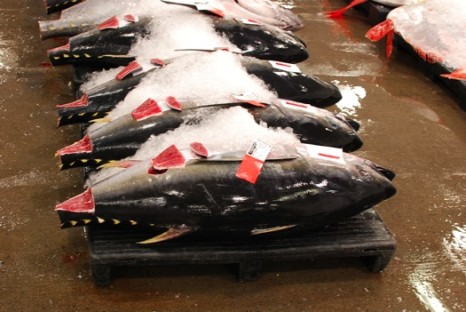 Environmentalists on Friday asked a federal judge to stop the National Marine Fisheries Service from allowing Hawaii-based fishermen to attribute some of the bigeye tuna they catch to U.S. territories. They argue the agency is enabling the fishermen to circumvent international agreements aimed at controlling the overfishing of the popular tuna species known as ahi. Earthjustice attorney David Henkin told U.S. District Judge Leslie Kobayashi the fisheries service acted illegally when it created a framework allowing Hawaii longline fishermen to record some of their catch as having been caught by fishermen in Guam, the Northern Mariana Islands and American Samoa. Read the rest here 17:26
Environmentalists on Friday asked a federal judge to stop the National Marine Fisheries Service from allowing Hawaii-based fishermen to attribute some of the bigeye tuna they catch to U.S. territories. They argue the agency is enabling the fishermen to circumvent international agreements aimed at controlling the overfishing of the popular tuna species known as ahi. Earthjustice attorney David Henkin told U.S. District Judge Leslie Kobayashi the fisheries service acted illegally when it created a framework allowing Hawaii longline fishermen to record some of their catch as having been caught by fishermen in Guam, the Northern Mariana Islands and American Samoa. Read the rest here 17:26
Proposal to Protect Deepwater Habitat and Cashes Ledge, Divides Room
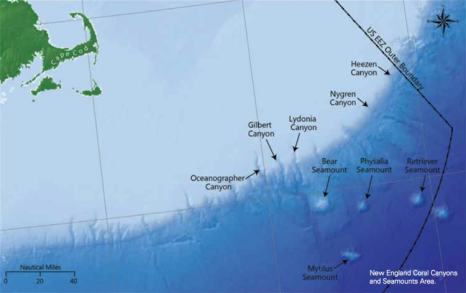 The commercial fishing industry noted that the area under consideration isn’t even entirely clear. The meeting’s agenda listed three canyons — Oceanographer, Gilbert and Lydonia — and the four seamounts south of them, but NOAA officials admitted the area in consideration could change. In fact, the two other canyons in the area — Nygren and Heezen — were mentioned, and plenty of speakers, both for and against monument designation, brought up Cashes Ledge, north of the area that was the meeting’s planned topic of discussion. Read the rest here 18:30
The commercial fishing industry noted that the area under consideration isn’t even entirely clear. The meeting’s agenda listed three canyons — Oceanographer, Gilbert and Lydonia — and the four seamounts south of them, but NOAA officials admitted the area in consideration could change. In fact, the two other canyons in the area — Nygren and Heezen — were mentioned, and plenty of speakers, both for and against monument designation, brought up Cashes Ledge, north of the area that was the meeting’s planned topic of discussion. Read the rest here 18:30
Battle Over Alaska’s Bristol Bay Pits Salmon Against Gold
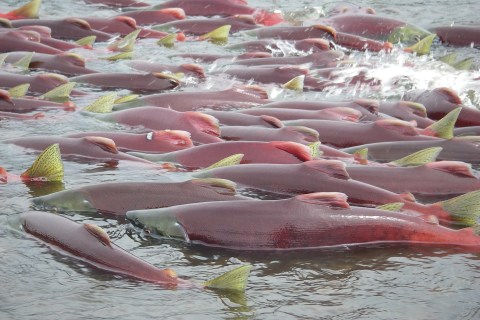 Commercial fisherman, native Alaskans and environmentalist in Bristol Bay have banded together to fight the building of the mine. Bristol Bay provides 40% of America’s wild caught seafood and $2 billion dollars in commercial fishing. It’s also the single greatest sockeye salmon fishery in the world. Right now, much of the land is protected by either the federal or state governments, but not the one piece where the potential mine would sit. Read the rest here 09:44
Commercial fisherman, native Alaskans and environmentalist in Bristol Bay have banded together to fight the building of the mine. Bristol Bay provides 40% of America’s wild caught seafood and $2 billion dollars in commercial fishing. It’s also the single greatest sockeye salmon fishery in the world. Right now, much of the land is protected by either the federal or state governments, but not the one piece where the potential mine would sit. Read the rest here 09:44
Paul LePage doesn’t want National Monument designations for Gulf of Maine
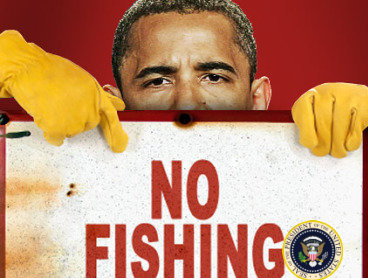 Republican Gov. Paul LePage is expressing his disapproval of a proposal to designate areas within the Gulf of Maine as a National Maritime Monument. This specific proposal for the Gulf of Maine would designate Cashes Ledge and undersea canyons and seamounts as a National Maritime Monument, according to a statement from LePage’s office. The change, according to the statement, would impact fishermen from a variety of sectors, including offshore lobstermen, tuna fishermen, herring fishermen and groundfish fishermen. “These serve only one purpose — excluding commercial fishing activity from certain segments of the ocean.” Read the rest here 11:34
Republican Gov. Paul LePage is expressing his disapproval of a proposal to designate areas within the Gulf of Maine as a National Maritime Monument. This specific proposal for the Gulf of Maine would designate Cashes Ledge and undersea canyons and seamounts as a National Maritime Monument, according to a statement from LePage’s office. The change, according to the statement, would impact fishermen from a variety of sectors, including offshore lobstermen, tuna fishermen, herring fishermen and groundfish fishermen. “These serve only one purpose — excluding commercial fishing activity from certain segments of the ocean.” Read the rest here 11:34
Friday Funny – ‘tree hugging’ taken to the extreme
 Some days you just have to wonder about the sanity of environmentalists, today is one of those days. The photo below, Twittered by PBS station KQED in San Francisco, would be considered “not safe for work” not only just for the content, but for the facts these lunatics used a child to further their goal. Use of children by unhinged environmentalists in protests is something we are seeing more and more of these days, such as we recently saw in Canada when Ezra Levant was asked by a parent to interview their child holding a sign. The parent then went on an online rant about it. Read the rest here 14:14
Some days you just have to wonder about the sanity of environmentalists, today is one of those days. The photo below, Twittered by PBS station KQED in San Francisco, would be considered “not safe for work” not only just for the content, but for the facts these lunatics used a child to further their goal. Use of children by unhinged environmentalists in protests is something we are seeing more and more of these days, such as we recently saw in Canada when Ezra Levant was asked by a parent to interview their child holding a sign. The parent then went on an online rant about it. Read the rest here 14:14
“just 100 cod left in the North Sea” – Media’s fish tales and codology
 Recovery of stocks of a species we were told was near extinction shows fishermen were right, writes Simon Collins. But the truth will out in the end. Almost three years on from “100 cod”, and five years after they last called for North Sea cod catches to be reduced to zero, the scientists assessing key fish stocks have just issued their latest advice. “Told you so” is not much comfort to the fishermen who have been portrayed as the bad guys over the years by national media, not to mention environmentalists who knew perfectly well what was going on all along. Read the rest here 08:09
Recovery of stocks of a species we were told was near extinction shows fishermen were right, writes Simon Collins. But the truth will out in the end. Almost three years on from “100 cod”, and five years after they last called for North Sea cod catches to be reduced to zero, the scientists assessing key fish stocks have just issued their latest advice. “Told you so” is not much comfort to the fishermen who have been portrayed as the bad guys over the years by national media, not to mention environmentalists who knew perfectly well what was going on all along. Read the rest here 08:09
Huge herring haul worries rival fishermen, environmentalists
 A little fish that New Englanders have sought since the Colonial era is at the center of a battle over how to manage massive boats that trawl swaths of ocean off the East Coast. The catch for the Atlantic herring, which travels in groups sometimes numbering in the billions, is in the midst of a massive boom. Last year fishermen caught more than 95,000 metric tons of the fish for the first time since 2009, federal statistics show. Now rival fishermen are raising concerns about the high catches, and regulators are starting to consider whether the big haul is adversely impacting the environment, marine mammals or other fisheries. Read the rest here 14:29
A little fish that New Englanders have sought since the Colonial era is at the center of a battle over how to manage massive boats that trawl swaths of ocean off the East Coast. The catch for the Atlantic herring, which travels in groups sometimes numbering in the billions, is in the midst of a massive boom. Last year fishermen caught more than 95,000 metric tons of the fish for the first time since 2009, federal statistics show. Now rival fishermen are raising concerns about the high catches, and regulators are starting to consider whether the big haul is adversely impacting the environment, marine mammals or other fisheries. Read the rest here 14:29

































